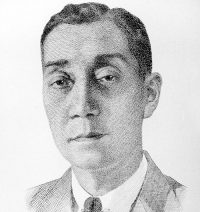Woke up early this morning. Inspected our bodegas. One warehouseman was not there. The bodega could not be opened.
The Japanese Military Administration authorized at last the sale of 327 bags of rice to different institutions, such as government and private hospitals, orphanages, as their allowance for the week beginning tomorrow, January 8. Rice ration for each institution was based on 200 to 300 grams per person.
Must not forget to make a supplementary report on the problems of food administration tomorrow.
Must remember to make a plan for the gathering of the harvest. Tanco or Silayan can do this.
It is work, work, work, from morning to afternoon and evening, and morning again. And all for what?
A government official is a slave.
(night)
Still awake and it’s almost 12 midnight. Thinking of the headline in this morning’s Tribune: BATAAN IS BOMBED. The story says that Limay, Balanga, Subic have been bombed. Assembled troops, ships, automobiles and trucks have been attacked.
Where Is the U.S. convoy? It is one month since Pearl Harbor and still no convoy.
My second boy is dreaming. He is talking in his sleep. Two more years and the military age would have gotten him too.
My Japanese neighbors are singing. They have a drinking party.
There is no sunshine without shadow. Now I am in the shadow.
More work today. Problems on the people’s food keep on mounting. Our high officials are not very much concerned about economic matters. My insistence that more attention be paid to the food question is like a voice in the wilderness. I feel alone.
Several urgent points:
(1) Our gasoline supply for rice-delivery trucks to 12 markets is sufficient for only 10 days. To continue this service, about 100 tins a week is needed.
(2) Our rice and pal” in warehouses in Baliuag, San Miguel, Muñoz, Cuyapo, Rizal, Sto. Domingo, Sta. Rosa, San Jose, Cabanatuan, and San Quintin must be immediately surveyed. These stocks should be milled and the rice brought to Manila.
(3) Must survey palay in fields and prepare it for milling to increase the city’s supply. Farmers must be made to know that we are ready to buy this palay.
(4) Secure passes for the men and the cars to make the provincial surveys. If possible, Japanese representatives should accompany Filipino officials to facilitate passage through Japanese sentries, in Bulacan, Nueva Ecija, Pangasinan and Rizal.
The newspapers say that the Japanese Army will
(1) recognize the status and authority of officials;
(2) protect life and property;
(3) recognize free worship of religion;
(4) recognize existing laws and orders as well as customs and usages, excepting those incompatible with the new situation.
People in the street do not believe all these news announcements. News boys selling the Tribune shout: “Balitang Kochero! Kuentong Kochero!” Facts are easier to believe than what appears in paper and ink. Slapping, bayonetting,—all these sink deeper into one’s being than words.
Fortunately, I have not yet been the subject of abuse. Still no slaps, no insults. I wonder what I will do if I were slapped. It is not good to talk of what one will do. Only politicians say what they will do. They are used to breaking their word.
The Imperial Headquarters have issued a communiqué, stating that Corregidor has been intensively bombed. I’ve seen the tunnel years ago. I think it will hold. I wonder how Rommy Romulo is. He always maintained that Japan had designs on the Philippines.
At the office, a man called me up. Said he was looking for my son, Philip, “He is in Bataan,” I said. “I was with him in the mountains,” he recounted. But I kept silent.
There are many spies. Men are not all the same under the skin. Judas had many children.
